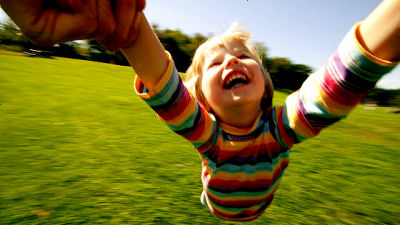How to make "a brain that feels happy"

ByKhalid Al-khater If you love someone, set them free.
While the world becomes more and more convenient, there are indications that the stress and anxiety that modern people have are increasing. Based on the fact that comfortable people become less likely to feel happy, a way to train the brain to make you feel more happy has been devised.
How to Build a Happier Brain - Julie Beck - The Atlantic
http://www.theatlantic.com/health/archive/2013/10/how-to-build-a-happier-brain/280752/
In the brain, it is easier for those worse than good ones to remain in memoryNegativity biasThere is a feature called called. As a result, despite advances in technology making life more rich and more comfortable, people are becoming stress, anxious, unfulfilled feeling, lonely feeling.
Dr. Rick Hasson, a neuropsychologist, in a book "Hardwiring Happiness", when he experiences a positive (positive) experience, by firmly recognizing it, he can train the brain and negatively control the head It says that it can dispel the (negative) idea.
This brain train recommended by Dr. Hasson is based on the idea of "Taking in the good". It is a method of impregnating the brain with various good things experienced in everyday life, conscious of positive experiences firmly. It means that it can be as short as 10 seconds, 20 seconds, 30 seconds, for the good thing to be firmly touched.

ByMoyan Brenn
Brain science is "to work togetherNeurons (neurons)There is an adage that both have connection ", which is a repeated thought pattern that shapes nerve cells. Thinking by existingSynapseNerve cells are created by being stimulated or creating new synapses.
However, the problem of negativity bias of the brain is the problem here. The human brain tends to focus on what is more negative than positive, so it tends to produce nerve cells from negative experiences. Learning immediately from pain is a place where you can understand it in a sensible way, the brain is relatively weak, making a nerve cell from a positive experience relatively.
Dr. Hasson thinks that if you do not consciously image the positive thinking in terms of the characteristics of the brain, it will not infiltrate the brain and not reach the head. In my daily life, there must be good things and wonderful experiences, and when I encounter it, the brain seems to be able to successfully digest positive experiences by being conscious of it firmly.

ByDavid Yu
The "thinking goodness" thinking is so-calledPositive thinking (plus thinking)Dr. Hasson says it is different. Positive thinking to do things that tilt things in a positive direction means to turn your eyes to negative information. Dr. Hasson says, "There are many friends who call themselves positive thinking, but they all seem to be fearful, angry, sad, depressed, vulnerable and feeling lonely, contrary to their fair brightness. My thought is premised on seeing the whole picture.The real world is mosaic like positive tiles and some negative tiles.With both of them conscious, more positive tiles should be carefully chosen That's it. " In other words, being aware of positive information while facing negative things is that it is "thinking good" thinking.

ByJim Bumgardner
Initially people became to have negativity bias because they were exposed to survival competition in the process of evolution. In the ancient world, people lived side by side with imminent threats such as predators and natural disasters. Positive things such as adequate food, safe place to evacuate, interaction with heterosexuals are certainly grateful, but it is something we can get tomorrow even if we can not get it today. But if today predators and natural disasters can not be avoided today, I will not do it tomorrow. Therefore, people evolved the brain to memorize bad information over good information.
Also, the positive thing is that a short term buffer (Short term memory) To long-term storage (Long-term memory), It follows the mechanism that it remains in memory. In order for short-term memory to be converted to long-term memory, information needs to be retained in the brain for a longer period of time. However, most good things happening in everyday life have been received without being particularly conscious. Pretty flowers bloom, children are laughing happily. But it is rarely remembered in the brain. Positive things do not remain in the brain unless you are conscious.
Dr. Hasson, as a positive factor to be "good" among the positive things passing by in our daily lives, "Feeling of security"Satisfaction"bondThree of them are cited. By feeling "peace of mind", people will be able to face straight even if the situation of work or life is difficult. In addition, it can respond to problems such as loss, disturbance, disappointment by hitting "satisfaction". And, by hitting "KIZUNA", the spirit of cooperativeness, kindness, charity became fostered, so that even when it was rejected by someone, denied, or neglected, my worth That means that.
Related Posts:







